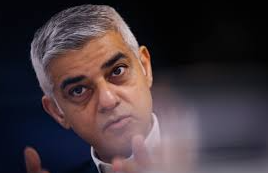
Mayor’s growth plan aims to inject £11,000 into every Londoner’s pocket by 2035 through key infrastructure and innovation investments.
Sadiq Khan, the Mayor of London, has launched a new economic growth plan aimed at revitalising the capital’s economy, with the bold claim that it could increase the average Londoner’s pre-tax income by £11,000. Unveiled this Thursday, the “London Growth Plan” sets out an ambitious strategy to restore productivity growth in the city, targeting an increase of 2% annually over the next decade. If successful, this could boost London’s economy by £107 billion by 2035, according to estimates from City Hall.
The plan outlines several key components, including major investments in housing and infrastructure, such as extending the Bakerloo line, DLR, and Overground, as well as proposals to devolve suburban rail services to Transport for London (TfL). These moves are seen as essential for driving future growth and addressing the productivity stagnation that has plagued the capital since the financial crisis of 2008. Between 1998 and 2007, London’s productivity grew by an average of 3.16% annually, but this fell sharply to just 0.12% between 2008 and 2022.
Khan’s plan also includes ambitious goals for job creation, aiming to generate 150,000 new jobs in the city. Additionally, the strategy highlights the development of “industrial innovation corridors” in various parts of London, such as the WestTech Corridor and the Thames Estuary. These corridors are designed to foster collaboration between high-growth sectors like AI, life sciences, and climate tech.
One of the major funding initiatives in the plan is a £21 million package from the UK Shared Prosperity Fund to support regeneration in town centres across the capital. The plan also proposes the creation of a publicly-owned High Street Estate Agency to bring vacant properties back into use. A new London Tech and Inclusive Growth Fund is also on the cards, offering up to £100 million in loan and equity funding to support small and mid-sized enterprises.
While Khan hailed the plan as a “golden opportunity” to unlock London’s full potential, critics have expressed concerns about its feasibility. Conservative members at City Hall questioned the plan’s chances of success, citing the national budget’s impact on growth and the potential negative effects of tax increases. The plan’s critics argue that London’s financial future will be shaped not only by local policies but also by the broader national economic environment.
Antonia Jennings, CEO of the Centre for London think tank, highlighted the need for a new financial settlement for London, noting that the city’s government currently has limited capacity to generate its own revenue compared to other global cities. To effectively implement the growth plan, she argued, London needs greater financial autonomy.
Despite these challenges, Khan remained optimistic, stressing that the plan is about more than just economic growth. It is a blueprint for creating a fairer, more prosperous London that benefits all its residents, with a focus on improving living standards, increasing public service investments, and ensuring that growth reaches every corner of the city.












